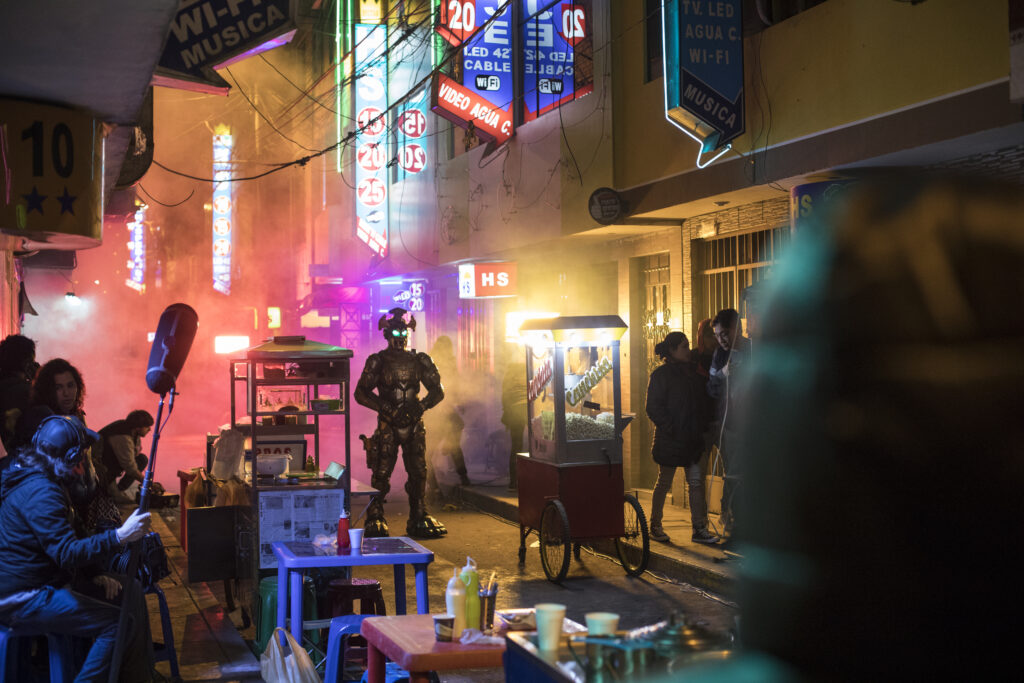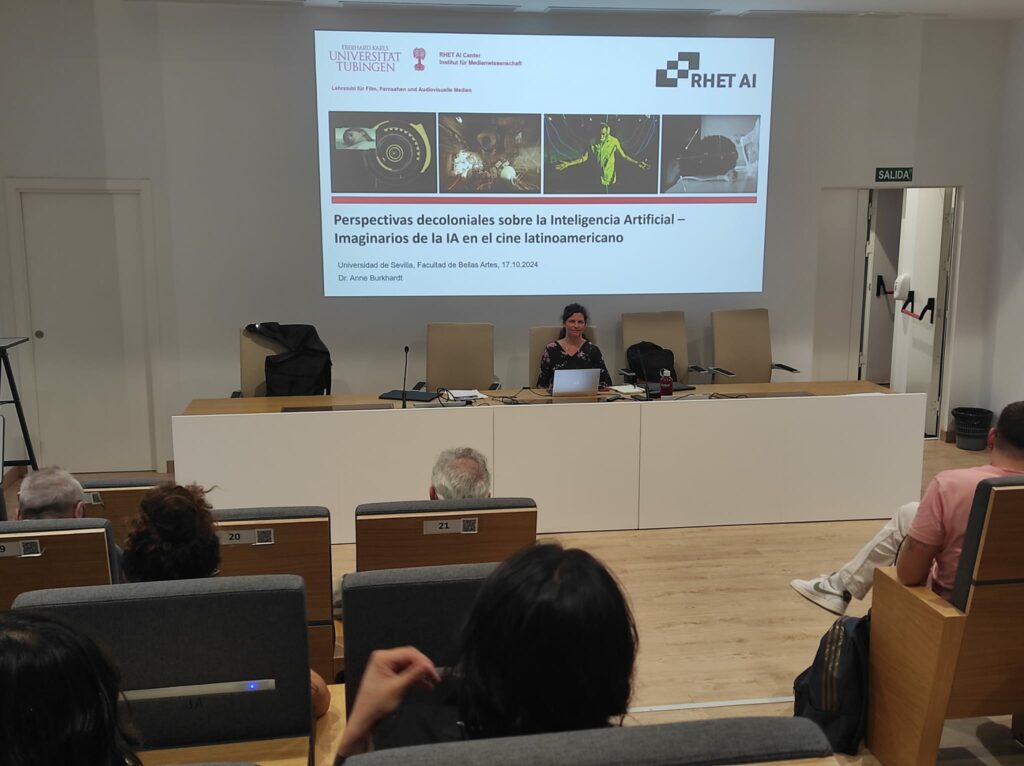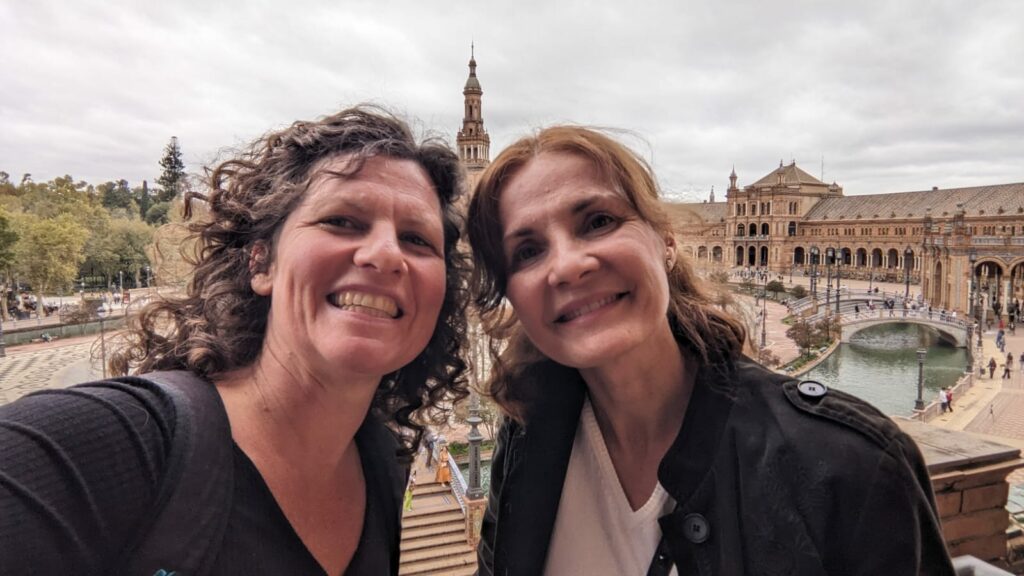On October 17 and 18, 2024, Anne Burkhardt from RHET AI was a guest at the Facultad de Bellas Artes of the Universidad de Sevilla, Spain. In an evening lecture and a workshop, Anne Burkhardt gave insights into her research.
The target group was primarily the faculty's doctoral students, but the events were open to all interested members of the university. This cooperation came about through Dra. Maria del Mar García Jiménez, who herself researches and teaches at the faculty and was a guest at RHET AI from July to September.
In her lecture, Anne Burkhardt spoke about how AI is reflected on from a global justice perspective, focusing in particular on decolonial perspectives on AI. For example, how AI reinforces or even creates (colonial) hierarchies as well as extractive and exploitative structures.

In a second step, she presented her study on the representation of AI in Latin American films. In contrast to US films, the films particularly reflect the themes that decolonial thinkers have identified in relation to AI.
The study, which deals with the representation of AI in Latin American film, consists, among other things, of interviews that Anne Burkhardt conducted with Latin American directors.
In the interviews with the directors of the films discussed, it became clear, for example, that they are strongly inspired by the historical and social reality of Latin American countries. This results in perspectives on AI that differ significantly from those of films from the Global North, for example through their strong reference to everyday life and the focus on coloniality.

The workshop on the following day focused on presenting and practicing the method used in the film study — hermeneutic film analysis. Anne Burkhardt first explained the basics of what hermeneutic film analysis is and how it works. The participants then analyzed two sequences from one of the films in the study together. The content from the previous day's lecture (e.g. on decolonial approaches) could be applied directly. Sequences from the film Sleep Dealer (Alex Rivera, 2008, Mexico/USA) were analysed. Finally, the participants reflected together on the extent to which they as artists can benefit from analytical approaches such as hermeneutic film analysis.
Anne Burkhardt was delighted to have the opportunity to be a guest at Maria del Mar's research center and to continue the academic exchange. However, the time in Seville was not just for academic work. Maria del Mar took the opportunity to provide insights to Anne Burkhardt into the diverse architecture and history of Seville during a personal tour of the city.






